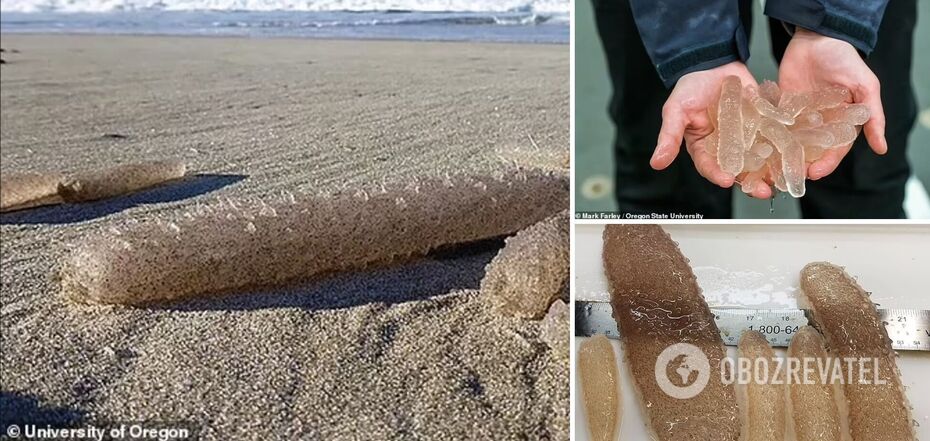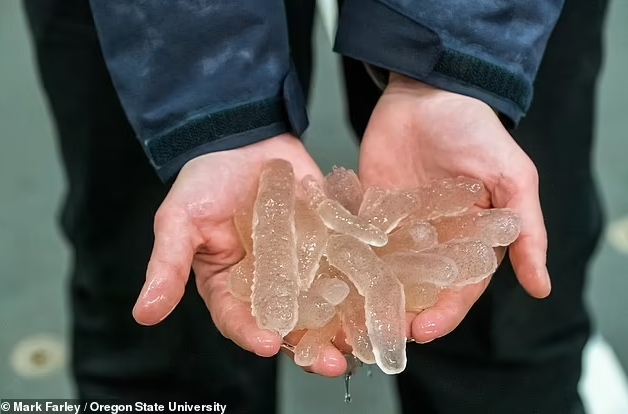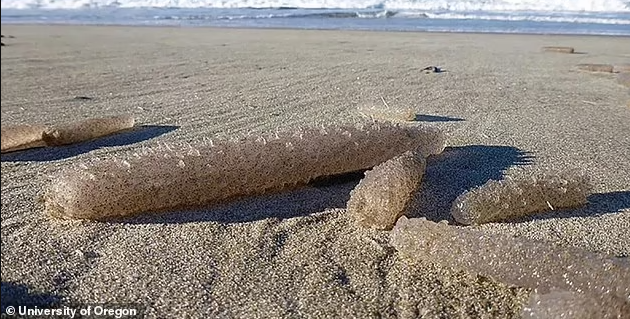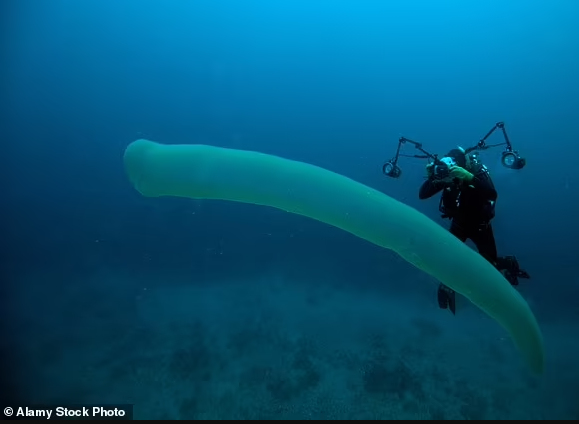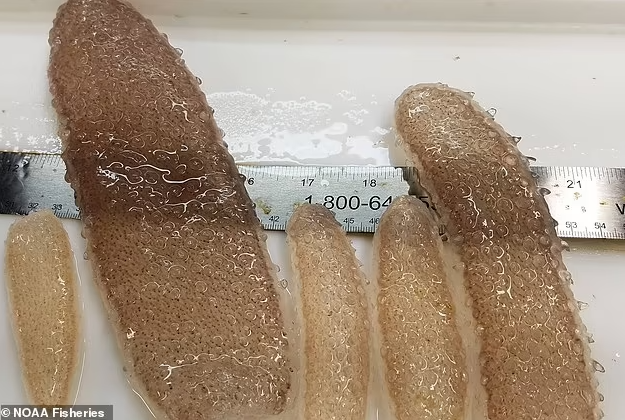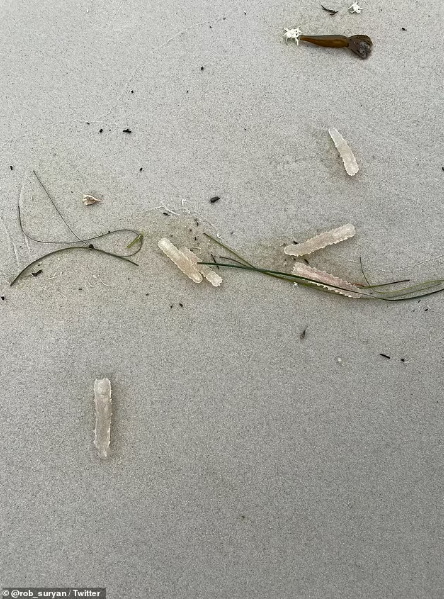News
Millions of drop-like creatures washed up on the ocean coast: what scientists say. Photo
Scientists have been warning for years that the consequences of global warming will be dire: from catastrophic floods to global extinction. The first warning signs can be seen right now. For example, along the coast of northern California and Oregon and up to Alaska, millions of strange creatures have been thrown out of the ocean.
Scientists are sounding the alarm - this process is caused by climate change. The details were reported by the Daily Mail.
What are pyrosomes?
Researchers from the University of Oregon have found that pyrosomes or "sea pickles", which look like gelatinous transparent masses, have washed ashore in incredible quantities due to a powerful wave of sea heat that began in 2013.
The spread of pyrosomes in the Pacific Ocean has led to a decline in salmon and seabirds. Pyrosomes feed on phytoplankton, which is the basis of marine food chains, and provide food for a wide range of marine life.
Pyrosomes can grow from a few centimeters to 1.5 meters in length.
"Pyrosomes consume animals that are at the bottom of the food chain and take energy out of the system that predators need," said Lisa Crozier, a research scientist at NOAA Fisheries Northwest Fisheries Science Center.
According to the study, pyrosomes cannot serve as an energy source for other species. While other creatures, such as salmon, pass on their energy source to feed larger animals, scientists say that 98% of pyrosome waste and residue accumulates at the bottom of the seafloor - in what are known as detritus pools.
"It affects the whole ecosystem... the pyrosome is consuming energy that would normally go through several stages to end up in the salmon," study co-author Dylan Gomez told The Seattle Times.
The increase in water temperature allowed pyrosomes to actively reproduce, while some fisheries were closed as the number of salmon, cod and crabs decreased. Scientists have suggested that the rise in temperature is the reason why the metabolic rate of animals increases in warmer water and they consume more energy. It is also important to take into account the drop in oxygen levels caused by the heating of the water.
Global warming is changing the ecosystems of the northeast Pacific.
Subscribe to OBOZ.UA channels in Telegram and Viber to keep up with the latest events.


